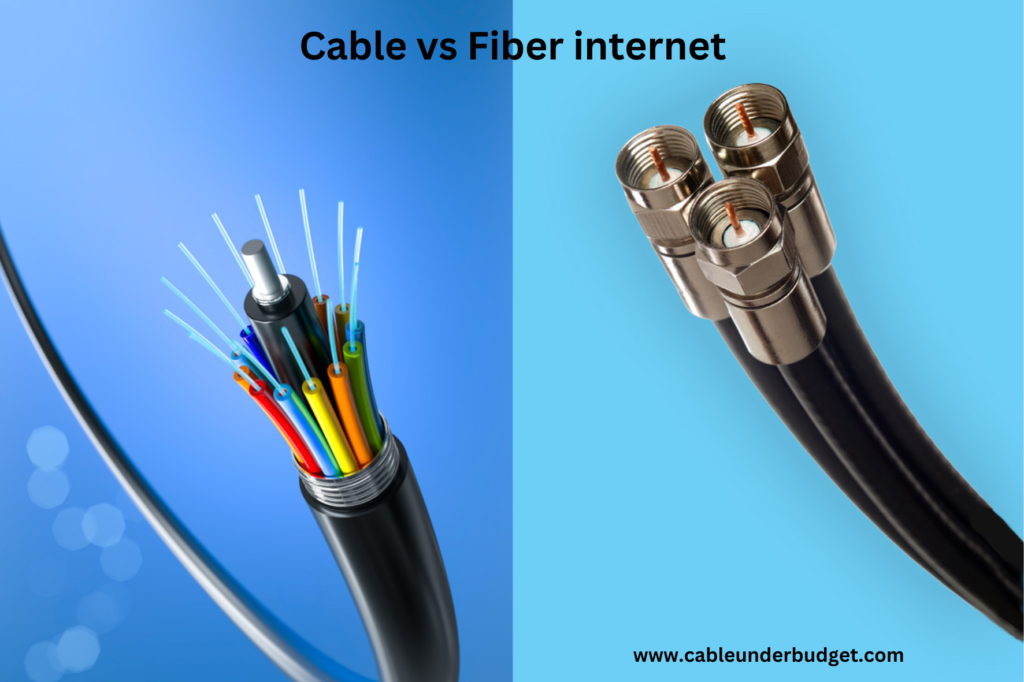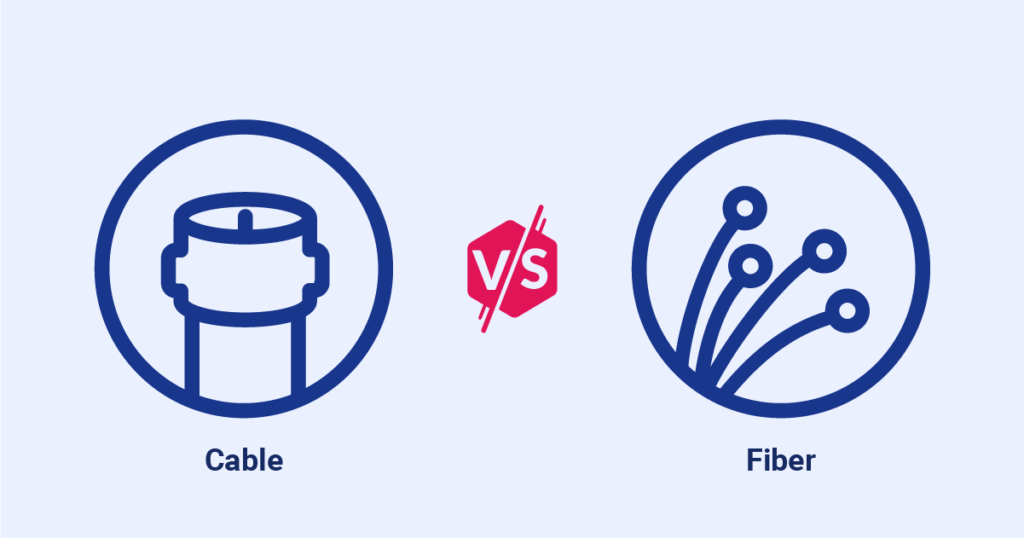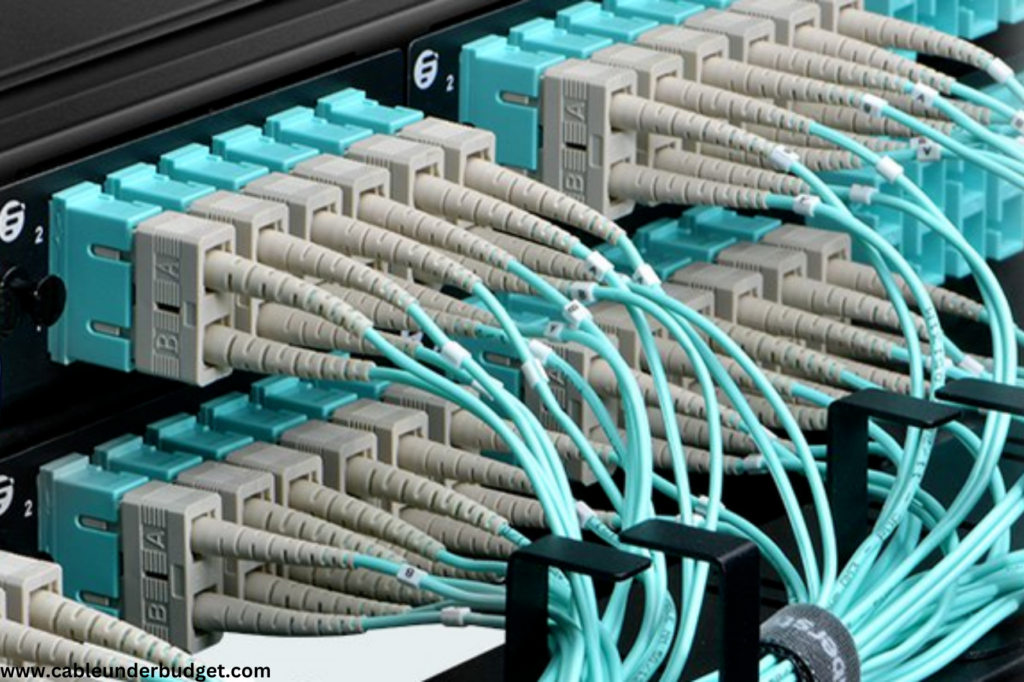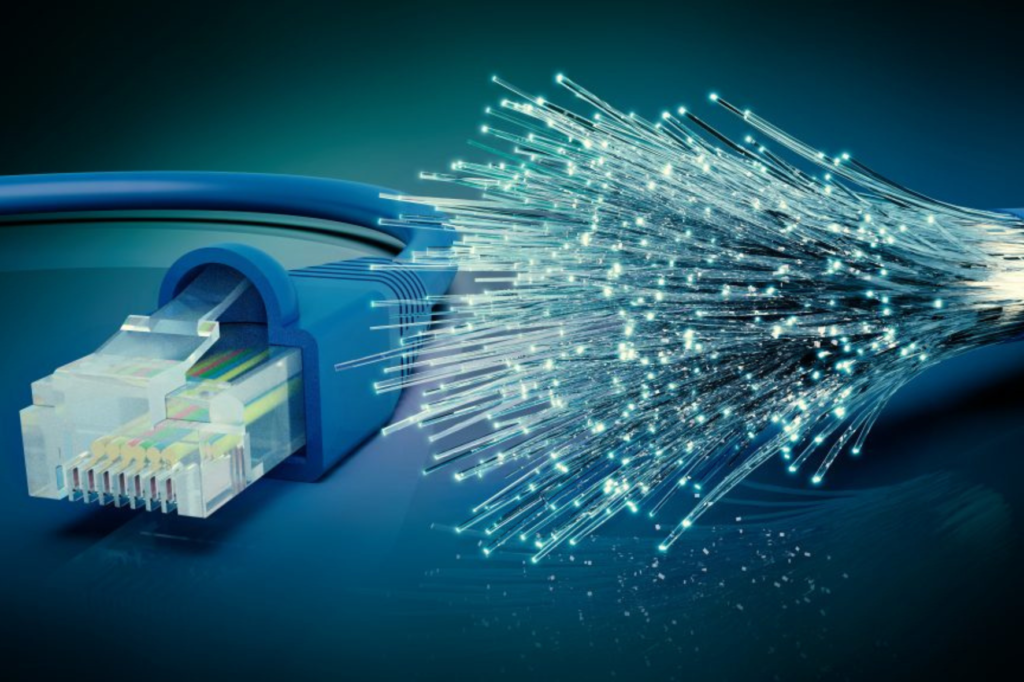Contents
- 1 Cable vs. Fiber-Optic Internet
- 2 What is Cable Internet?
- 3 What is Fiber-Optic Internet?
- 4 Conclusion
- 5 FAQs
- 5.1 is fiber or cable internet better?
- 5.2 Is fiber-optic internet available in rural areas?
- 5.3 Can I switch from cable to fiber-optic internet without any disruptions?
- 5.4 Does fiber-optic internet require a special modem?
- 5.5 Is fiber-optic internet more expensive than cable internet?
- 5.6 What factors should I consider when choosing between cable and fiber-optic internet?
- 5.7 what are cable internet types?
- 5.8 Why don’t the telephone and internet interfere in cable internets like ADSL and VDSL?
- 5.9 Why is optical fiber preferable to copper cable?
- 5.10 Fiber vs cable internet for business
Cable vs. Fiber-Optic Internet
In today’s digitally connected world, having a reliable internet connection is crucial for both personal and professional activities. When it comes to choosing an internet service provider (ISP), consumers often find themselves comparing cable and fiber-optic internet options. Both offer high-speed internet access, but they utilize different technologies, which can significantly impact performance and reliability. In this article, we’ll delve into the details of cable vs fiber-optic internet to help you make an informed decision.

What is Cable Internet?
Cable internet relies on the same coaxial cables that deliver television signals to your home. These cables are made of copper and transmit data through electrical signals. Cable internet is widely available and is often bundled with other services such as television and phone.
Advantages of Cable Internet:
-
- Availability: Cable internet is accessible in many areas, especially urban and suburban regions.
-
- Speed: It offers high-speed internet, making it suitable for streaming, gaming, and other bandwidth-intensive activities.
-
- Bundling Options: Cable internet providers often offer bundled packages that include television and phone services, providing convenience and potential cost savings.
-
- Technology: Cable internet relies on coaxial cables to transmit data. These cables are made of copper and were originally designed for cable television. In cable internet systems, data is transmitted through these cables to a modem in the subscriber’s home, allowing access to the internet.
-
- Pricing and Affordability: In terms of pricing, cable internet plans are often more affordable compared to fiber-optic plans. This makes cable internet a popular choice for budget-conscious consumers.
Disadvantages of Cable Internet:
-
- Speed Consistency: The speed of cable internet can be affected by the number of users in your area, leading to potential slowdowns during peak hours.
-
- Signal Interference: Since cable internet uses copper cables, signal interference from electronic devices or weather conditions can impact performance.
-
- Limited Upload Speeds: While download speeds are typically fast, upload speeds with cable internet tend to be slower, which may affect activities such as video conferencing or uploading large files.

What is Fiber-Optic Internet?
Fiber-optic internet utilizes thin strands of glass or plastic fibers to transmit data using light signals. This technology allows for faster and more reliable internet connections compared to traditional copper-based systems.
Advantages of Fiber-Optic Internet:
-
- Speed: Fiber-optic internet offers incredibly fast download and upload speeds, ideal for streaming, gaming, video conferencing, and large file transfers.
-
- Reliability: Fiber-optic cables are less susceptible to signal interference and degradation, providing a more stable internet connection.
-
- Symmetrical Speeds: Unlike cable internet, fiber-optic internet offers symmetrical upload and download speeds, ensuring a seamless online experience for all activities.
-
- Technology: Fiber-optic internet, on the other hand, utilizes fiber-optic cables made of glass or plastic to transmit data as pulses of light. These cables are capable of carrying large amounts of data over long distances with minimal signal loss, resulting in faster and more reliable internet connections.
Disadvantages of Fiber-Optic Internet:
-
- Availability: Fiber-optic internet may not be as widely available as cable internet, particularly in rural areas or regions with limited infrastructure.
-
- Installation Costs: The initial installation of fiber-optic infrastructure can be more expensive compared to cable internet, although prices have been decreasing as the technology becomes more prevalent.
-
- Dependency on Infrastructure: The reliability of fiber-optic internet can be affected by the quality of the infrastructure, including the condition of the fiber-optic cables and the network equipment.
-
- Pricing and Affordability: In terms of pricing, cable internet plans are often more affordable compared to fiber-optic plans. This makes cable internet a popular choice for budget-conscious consumers.
Conclusion
In the debate between cable and fiber-optic internet, there is no one-size-fits-all answer. Each type of internet connection has its own unique advantages and limitations, and the best choice depends on individual preferences and needs. While cable internet may be more widely available and affordable, fiber-optic internet offers unparalleled speed and reliability. Ultimately, consumers should weigh the pros and cons of each option carefully before making a decision.
FAQs
is fiber or cable internet better?
Is fiber-optic internet available in rural areas?
Can I switch from cable to fiber-optic internet without any disruptions?
Does fiber-optic internet require a special modem?
Is fiber-optic internet more expensive than cable internet?
What factors should I consider when choosing between cable and fiber-optic internet?
what are cable internet types?
Cable internet types commonly include ADSL (Asymmetric Digital Subscriber Line) and VDSL (Very High Bitrate Digital Subscriber Line).
Why don’t the telephone and internet interfere in cable internets like ADSL and VDSL?
Why is optical fiber preferable to copper cable?
Fiber vs cable internet for business


Pingback: Cable vs Fiber Optic Internet Speed: Understanding the Differences - WWW.CABLEUNDERBUDGET.COM
Pingback: Cable vs Fiber Optic Internet Speed : Understanding the Differences 1